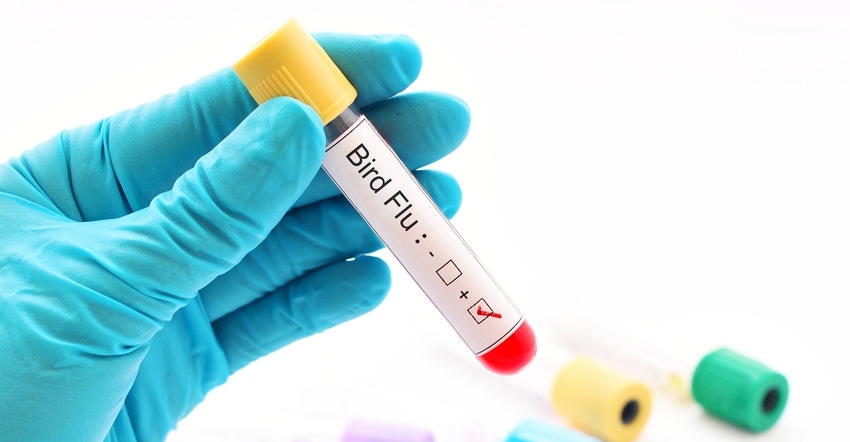March 9, 2022

Federal laboratory testing has confirmed two new cases of highly pathogenic H5N1 avian influenza on Delmarva: one pullet operation in New Castle County, Del., and a broiler flock in Queen Anne’s County, Md.
This now brings the total number of confirmed HPAI cases on Delmarva to four, after previously announced cases on farms in New Castle County, Del., and Cecil County, Md.
The New Castle County pullet farm has 265,000 birds, and the Queen Anne’s County broiler flock has 150,000 birds.
More than 2 million birds have been culled because of the positive test results on Delmarva.
After these cases, federal and state partners have greatly expanded their surveillance sampling and testing regimen to better protect the poultry industry on the Delmarva Peninsula.
State officials have quarantined all affected premises, and birds on the properties are being or have been depopulated to prevent the spread of the disease. Birds from affected flocks will not enter the food system.
Stacey Hofmann, speaking on behalf of the HPAI Joint Information Center at the Delaware Department of Agriculture, says there are no other suspected cases at this time, and that both states are continuing to test flocks in the control area and surveillance zone as outlined by USDA’s Animal and Plant Health Inspection Service.
The new case in New Castle County was in the established control area for the original case, which involved a layer poultry operation, she says. “At this time, we do not have any suspicion that these cases are related,” Hofmann says. “We do have animal health epidemiologists on the ground working on contact tracing to see if there are any links.”
Avian influenza is a highly contagious airborne respiratory virus that spreads quickly among birds through nasal and eye secretions and manure. The virus can be spread in various ways from flock to flock, including by wild birds, through contact with infected poultry, by equipment, and on the clothing and shoes of caretakers.
This virus affects poultry — such as chickens, ducks and turkeys — along with some wild bird species such as ducks, geese, shorebirds and raptors.
Considering these new cases and the prevalence of the virus in the wild bird population, all poultry owners need to increase their vigilance in protecting their flocks from contracting avian influenza. Here are some important steps to take:
Clean and disinfect vehicles. Don’t walk through or drive trucks, tractors or equipment in areas where waterfowl or other wildlife feces may be. If you can’t avoid this, clean your shoes, vehicle and equipment thoroughly to prevent bringing disease agents back to your flock. This is especially important when visiting with farmers or those who hunt wildfowl, such as when gathering at a local coffee shop, restaurant or gas station.
Remove loose feed. Don’t give wild birds, rodents and insects a free lunch. Remove spilled or uneaten feed immediately, and ensure feed storage units are secure and free of holes. Wild birds can carry HPAI.
Keep visitors to a minimum. Only allow those people who take care of your poultry to come in contact with your birds, including family and friends. Make sure everyone who has contact with your flock follows biosecurity principles.
Wash your hands before and after encountering live poultry. Wash with soap and water (always your first choice). If using hand sanitizer, remove manure, feathers and other materials from your hands because disinfectants will not penetrate organic matter or caked-on dirt.
Provide disposable boot covers (preferred) or disinfectant footbaths for anyone having contact with your flock. If using a footbath, be sure to remove all droppings, mud or debris from boots and shoes using a long-handled scrub brush before stepping into the disinfectant footbath, and always keep it clean.
Change clothes before entering poultry areas and before exiting the property. When handling birds, visitors should wear protective outer garments or disposable coveralls, boots and headgear. Shower out and change clothes when leaving the facility.
Clean and disinfect tools or equipment before moving them to a new poultry facility. Before allowing vehicles, trucks, tractors, or tools and equipment that have come in contact with birds or their droppings to exit the property, ensure they are cleaned and disinfected to prevent contaminated equipment from transporting disease. Do not move or reuse items that cannot be cleaned and disinfected, such as cardboard egg flats.
How to report sick birds
Commercial poultry producers should follow the procedures of contacting the company they grow for when they notice signs of disease.
Backyard flock owners who notice any of the signs of HPAI in their flock should contact authorities.
In Delaware, email the Delaware Poultry Health Hotline at [email protected] or call 302-698-4507 and provide your contact information, size of flock, location and concerns.
In Maryland, report any unusual or sudden increases in sick birds to the Maryland Department of Agriculture’s Animal Health Program at 410-841-5810. Commercial chicken growers and backyard flock owners can email questions about the outbreak to [email protected].
Source: Maryland Department of Agriculture and Delaware Department of Agriculture, which are solely responsible for the information provided and are wholly owned by the sources. Informa Business Media and all its subsidiaries are not responsible for any of the content contained in this information asset.
You May Also Like




